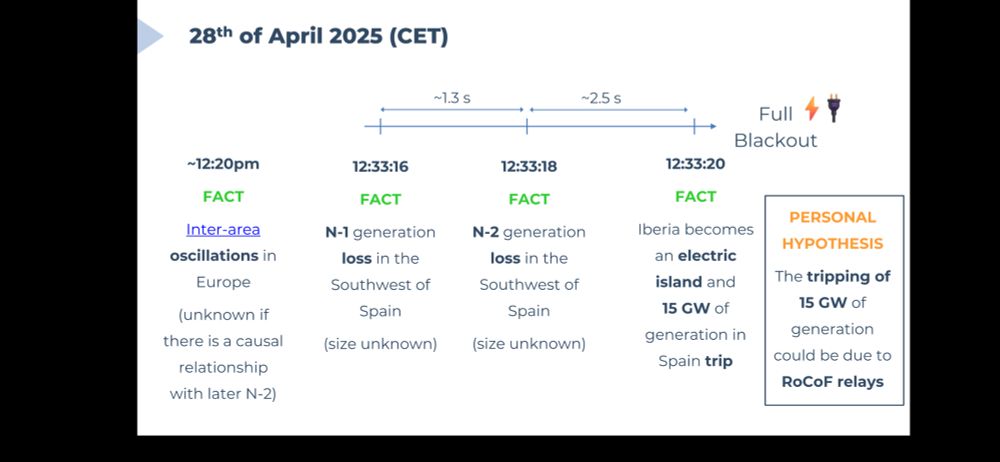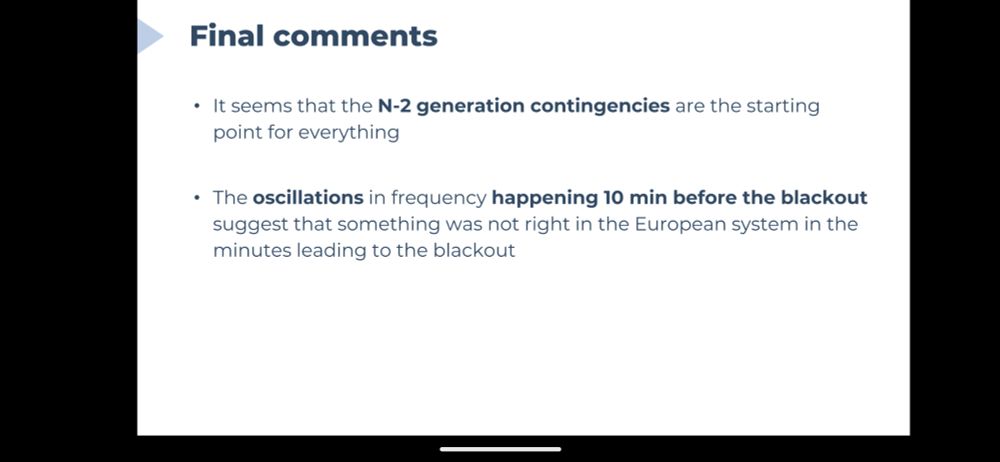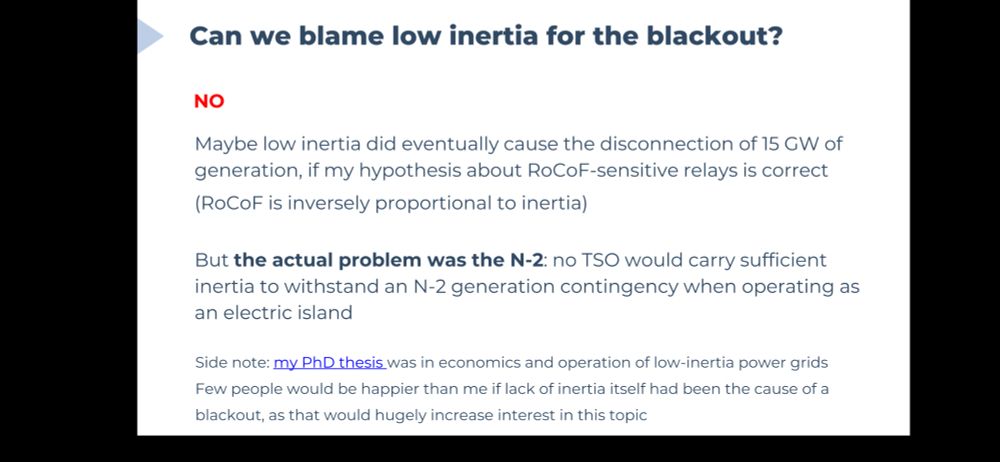all my homies live in a low dimensional feature subspace
09.08.2025 00:45 — 👍 31 🔁 6 💬 3 📌 0
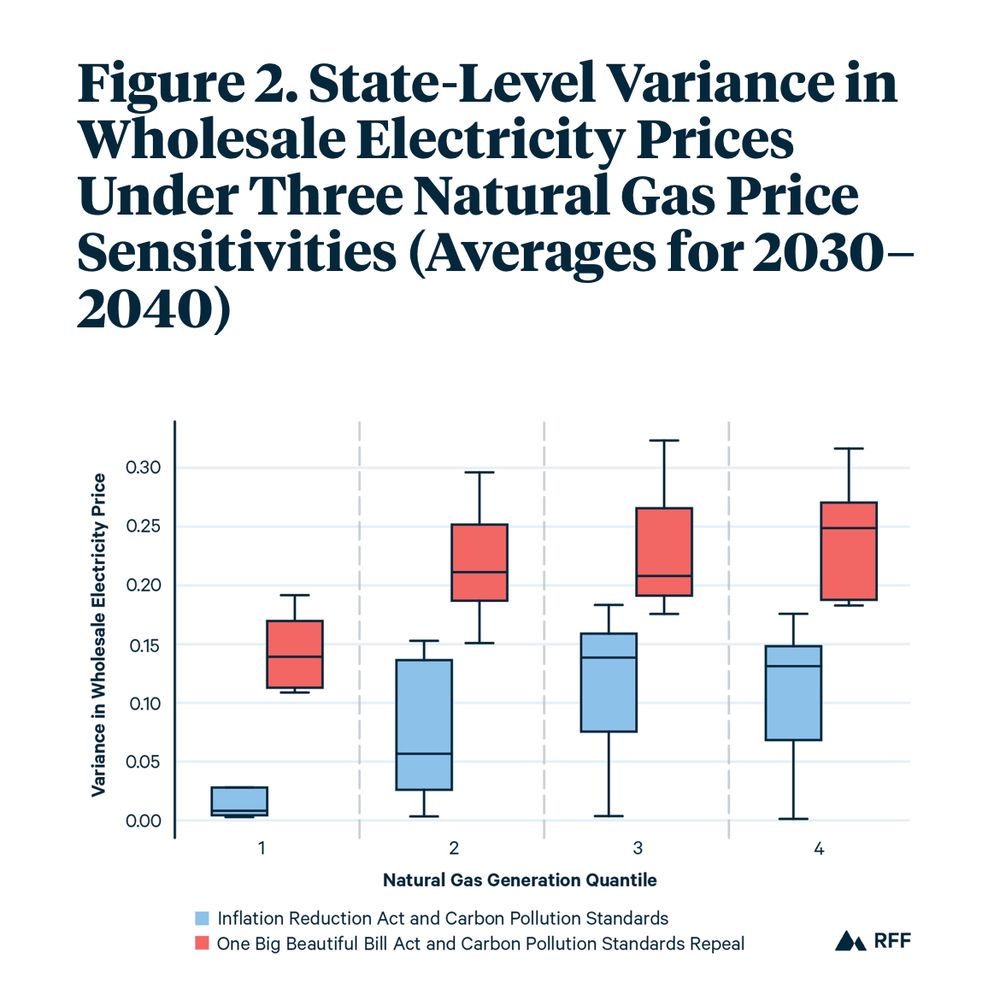
New blog post with my colleague on how new policy decisions expose fossil dependent grids to greater electricity price uncertainty.
www.resources.org/common-resou...
08.08.2025 13:04 — 👍 2 🔁 1 💬 0 📌 0
Also includes analysis of OBBBA and OBBBA + CPS repeal impacts on household electricity expenditures. We also incorporate more recent electricity demand projections that EPA excluded from their analysis.
06.08.2025 21:10 — 👍 0 🔁 0 💬 0 📌 0
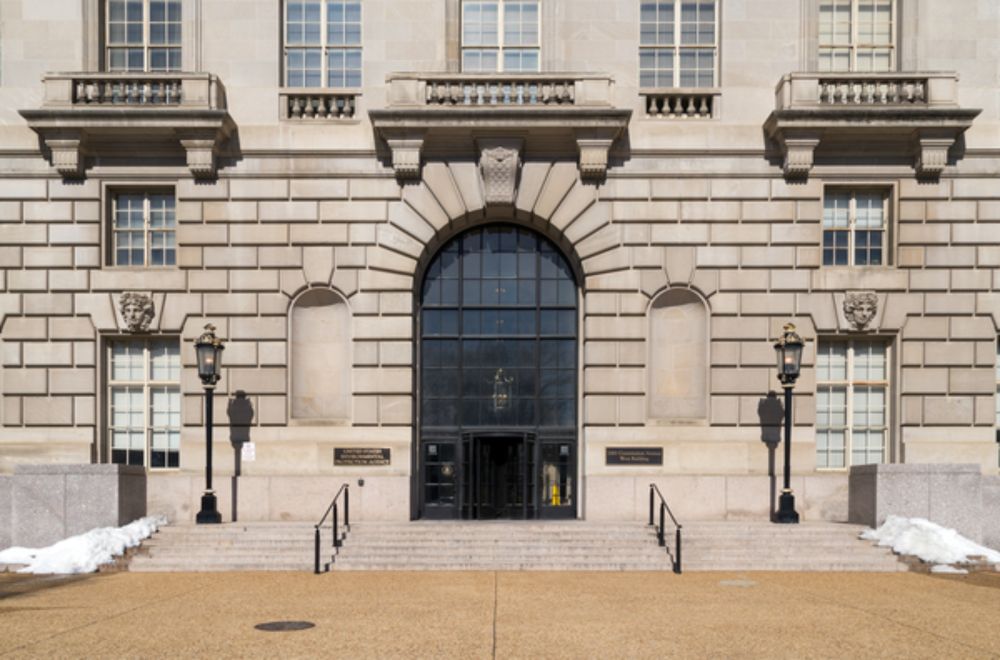
Hidden Costs of Repealing EPA’s Carbon Pollution Standards: Consequences for the Environment, Households, and Society
Hidden Costs of Repealing EPA’s Carbon Pollution Standards: Consequences for the Environment, Households, and Society
For those curious about the impacts of EPAs Carbon Pollution Standard repeal.
www.rff.org/publications...
TLDR:
- health + climate damages > savings in compliance costs
- health damages outweigh compliance cost savings 2-4x.
- health + climate damages outweigh compliance cost savings 4-8x.
06.08.2025 21:10 — 👍 4 🔁 2 💬 1 📌 0
I think one mental model of renewables was that the government had anywhere from neutral to positive association with them. I think this is the first time we’re seeing direct opposition to this technology in the US in such open ways. We don’t really know what comes of that
05.08.2025 12:12 — 👍 2 🔁 0 💬 1 📌 0
State carbon markets are the policy laboratory for US climate policy we all should be watching. Especially as we watch federal support for carbon emissions reductions evaporate.
31.07.2025 14:29 — 👍 1 🔁 0 💬 0 📌 0
Federal climate action is slowing, but states are using emissions trading systems to cut emissions and raise state revenue. RFF Research Associate Nicholas Roy explains how in this new In Focus video 👇
31.07.2025 13:36 — 👍 2 🔁 1 💬 0 📌 1
What does the One Big "Beautiful" Bill mean for the US energy transition, household and business energy costs, electricity supplies and emissions? We've published a quick summary report of our findings here: doi.org/10.5281/zeno... #OBBB
🔌💡
02.07.2025 21:59 — 👍 32 🔁 9 💬 2 📌 0
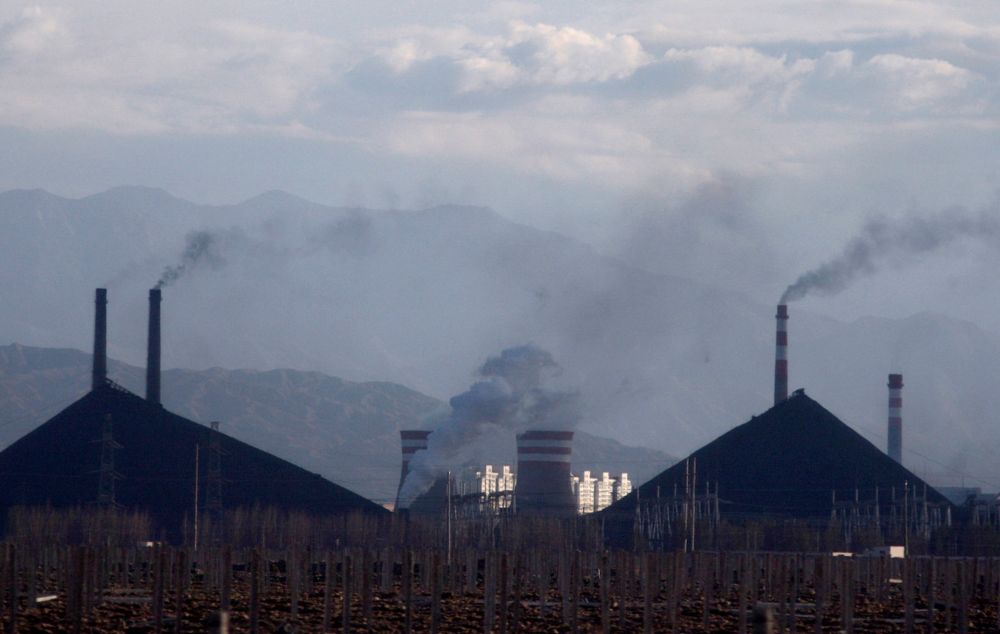
Opinion | A carbon tariff is the right way to confront China on trade
Climate-friendly tariffs would penalize countries that undercut U.S. companies with dirtier production.
This Op-Ed on a U.S. carbon tariff gets lots of basic stuff wrong.
Unlike authors' claims, a U.S. carbon tariff
1. Won't address PRC competition
2. Either raises lots of revenue or lowers GHGs (not both)
3. Weakens incentives to adopt domestic U.S. climate policy. 🧵 1/
#econsky #climatesky
24.06.2025 07:15 — 👍 9 🔁 5 💬 3 📌 3
I agree with all of Kyle’s critiques and would add 2 more:
1. The piece cites Australia and Canada as countries where voters rejected carbon prices, but that’s not true. In AUS it’s called a “safeguard mechanism” and was put in place in 2023. CAN kept the price for industries the focus of the piece
24.06.2025 08:20 — 👍 4 🔁 3 💬 3 📌 0
the 2028 phaseout is under commence construction instead of placed in service like the house bill. Big deal!
16.06.2025 23:31 — 👍 3 🔁 1 💬 1 📌 1
Senate Finance text is out. Solar and wind out by 2028 except one weird carveout. Batteries keep full ITC /PTC and expanded component eligibility in 45X?
(Text keeps transferability but gets rid of 5-year MACRS depreciation on *all* zero-emissions tech. Bad for clean firm!)
16.06.2025 22:43 — 👍 73 🔁 26 💬 1 📌 3
Read the full paper here: www.science.org/doi/10.1126/science.adt5665
Or the two-page summary: restservice.epri.com/publicattach...
Or the tl;dr thread: bsky.app/profile/bist...
@aafawcett.bsky.social @jessedjenkins.com @nicholasroy.me @aliciaszhao.bsky.social
11.06.2025 18:48 — 👍 5 🔁 1 💬 1 📌 0
Using California’s cap-and-trade revenue to lower electricity prices | emLab
With @cagovernornewsom.bsky.social's budget out, CA cap-and-trade reauthorization is fully underway.
Today, we release a UCSB emLab analysis showing how C&T revenue can significantly lower California's too-high retail electricity prices.
Exec summary, paper, online calculator below.
Short 🧵1/
19.05.2025 20:35 — 👍 9 🔁 2 💬 1 📌 2
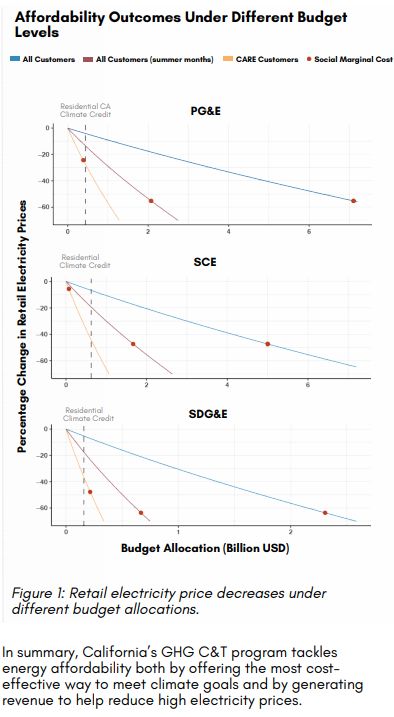
UCSB researchers just released a great analysis of how to use the state's cap-and-trade program revenues to invest in energy affordability. 1 pager, policy brief, and online calculator are all great tools! emlab.ucsb.edu/projects/usi...
19.05.2025 22:07 — 👍 3 🔁 0 💬 0 📌 0
I think "baffling" rhetoric is what he is muddying more so than the politics (of course there is some of that too). It is a risky experiment that could be justified if there is meaningful policy progress. I share your skepticism but am optimistic that meaningful outcomes could materialize.
18.05.2025 14:42 — 👍 0 🔁 0 💬 0 📌 0
This was a great breakdown of the political economy in California. Another element to this is the national stage of Newsom v. Trump creating a "your with us or against us" vibe to California legislating. Second order to what you describe, but courageous leadership (from either side) could elevate it
18.05.2025 13:09 — 👍 1 🔁 0 💬 1 📌 0
Great thread unraveling right now that is breaking down the political history of California's cap-and-trade and how we got to today's reauthorization.
16.05.2025 19:37 — 👍 0 🔁 0 💬 0 📌 0
Wow. I am waiting with bated breath.
16.05.2025 19:36 — 👍 1 🔁 0 💬 0 📌 0

Projected Impacts of Repealing the Section 45Y and 48E Technology-Neutral Clean Electricity Tax Credits
Projected Impacts of Repealing the Section 45Y and 48E Technology-Neutral Clean Electricity Tax Credits
Many are saying the current reconciliation proposal is equivalent to a full repeal of the IRA. We analyzed the repeal of clean electricity tax credits in an earlier issue brief.
Household, fiscal, and emissions impacts all included!
www.rff.org/publications...
13.05.2025 19:38 — 👍 1 🔁 1 💬 0 📌 0
Great points! Ultimately I guess it matters less given the extent of FEOC and other restrictions.
I’m still not sure transferability is hindered substantially if it weren’t for additional restrictions placed on these credits.
12.05.2025 23:08 — 👍 3 🔁 0 💬 0 📌 0
I meant more broadly how long until a project goes from
"commence construction" before it is "placed in service". In the case of direct pay:
project commences construction before 2027, probably goes online in 2031 when the tax credit is almost expired.
Are projects building faster than 3 years?
12.05.2025 21:42 — 👍 2 🔁 0 💬 1 📌 0
Yes, but construction commencement beginning in 2026 is pretty broad language. Isn't there still the 4-year safe harbor?
12.05.2025 21:17 — 👍 0 🔁 0 💬 1 📌 0
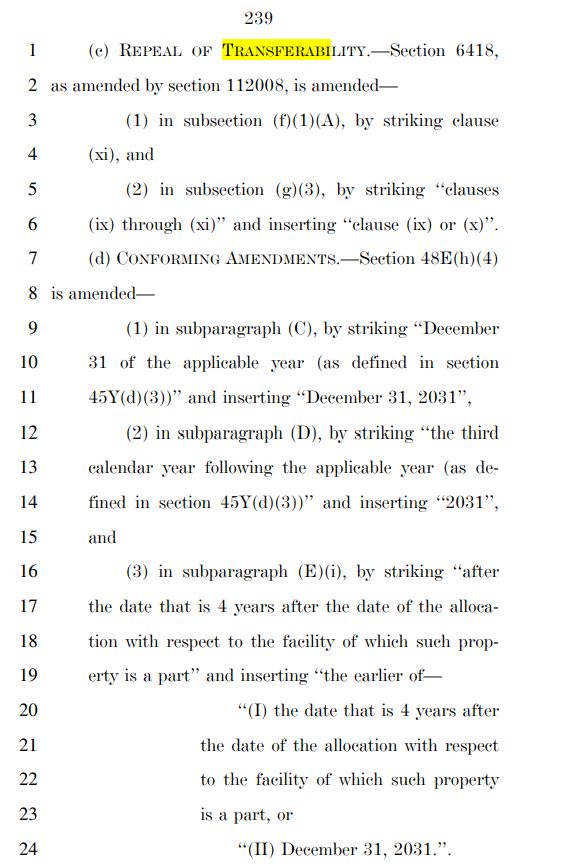
Reading the transferability language for PTC/ITC it seems like they repeal when the tax credit value goes to 0....
I don't see how transferability (for the PTC/ITC) is effectively changed at all?
12.05.2025 20:55 — 👍 1 🔁 0 💬 1 📌 0
In short, uncertain how much it slows decarb. In theory clean electricity tax credits are still active until end of decade. Depends how fast you can build and how much domestic manufacturing can accelerate.
12.05.2025 20:37 — 👍 0 🔁 0 💬 0 📌 0
I am mostly focused on clean electricity tax credits which have an accelerated phase down timeline beginning in 2029. I expected an earlier repeal. However, many other provisions related to foreign entities of concern and non-power sector decarb are facing more stringent repeal. .
12.05.2025 20:37 — 👍 0 🔁 0 💬 1 📌 0
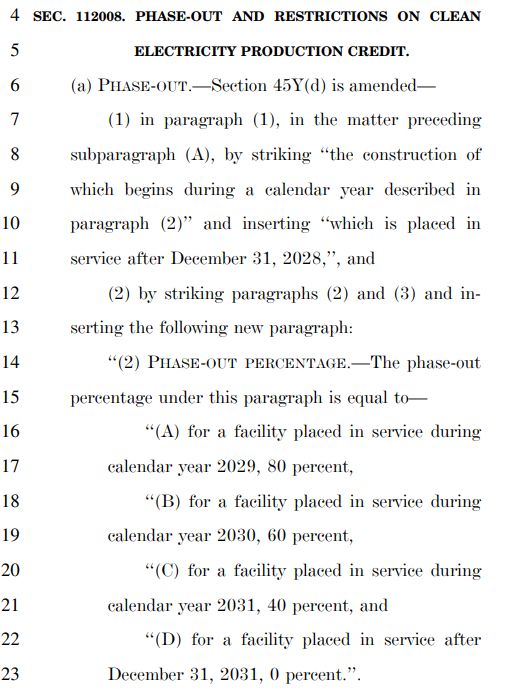
The ways and means adjustment to IRA clean electricity tax credits are out. Phaseout of tax credits begins in 2029-2032. Modeling coming soon.
waysandmeans.house.gov/wp-content/u...
12.05.2025 19:56 — 👍 1 🔁 0 💬 0 📌 0
Cool, now do GHG emissions (or at least CO2)
29.04.2025 14:14 — 👍 0 🔁 0 💬 0 📌 0
In the Name of Humanity, We Refuse To Accept a Fascist America! The Fascist Trump Regime Must Go!
http://linktr.ee/refusefascism
defend democracy and build homes / policy advocate @protectdemocracy.org / author ifyoucankeep.it / co-prez @sacyimby.bsky.social / rash opinions my own
No kings but Sac Kings
📍Sacramento
The official Bluesky account of the Stanford Institute for Economic Policy Research (SIEPR), Stanford University's home for addressing economic policy challenges around the globe.
Learn more about us: https://siepr.stanford.edu
https://sustainability.stanford.edu/
My Substack: Culture Fries By Toure... My Hiphop Show: Rap Latte on YouTube... My Podcast: Toure Show... TV host, 8x author, 2x father, 1x husband. MSNBC, BET, Rolling Stone, NYT.
Political economy, Russia, ext. Also pictures of cats. Recovering historian doing financial engineering for the public sector the Center For Public Enterprise and still sometimes missing academia.
https://www.hup.harvard.edu/books/9780674240995
PhD student @EconomiaUAndes 🇨🇴 Evaluating climate and energy policies.
https://brigitte-castaneda.github.io
PhD MSc at Electrical Energy Lab of Ghent University. Spaceflight enthusiast. Speelvogel. West-Vlaming in Hent. Stating a personal opinion.
Forest Economist🌲🪵🏡
Raleigh, NC | Athens, GA
Environmental Economist.
Loves mountains in the winter.
California environment reporter at POLITICO
Co-founder and lead analyst, Centre for Research on Energy and Clean Air; senior fellow, Asia Society Policy Institute: tracking & accelerating progress from polluting energy to clean air, with research and evidence.
political theologian at the ministry for the future
interests: classics, history, philosophy, conflict + IR, economics, foreign policy, climate change, east asia (korea + japan)
words: Foreign Policy + LiberalCurrents
finance & energy & markets & climate @ Center for Public Enterprise ☀️🏗️ • bay area / dc • advaitcore.substack.com. on twitter at @advaitarun_
Assistant Professor of Economics and Environmental Policy at Simon Fraser University - School of Public Policy. Research in environmental economics, climate policy, and macro-energy systems
http://wscott.info
💻I write about tech, telecom, media, politics, and consumer rights.🕺🙄🤦♂️
understander of things climate-related, and some other things
@thepolycrisis.bsky.social









